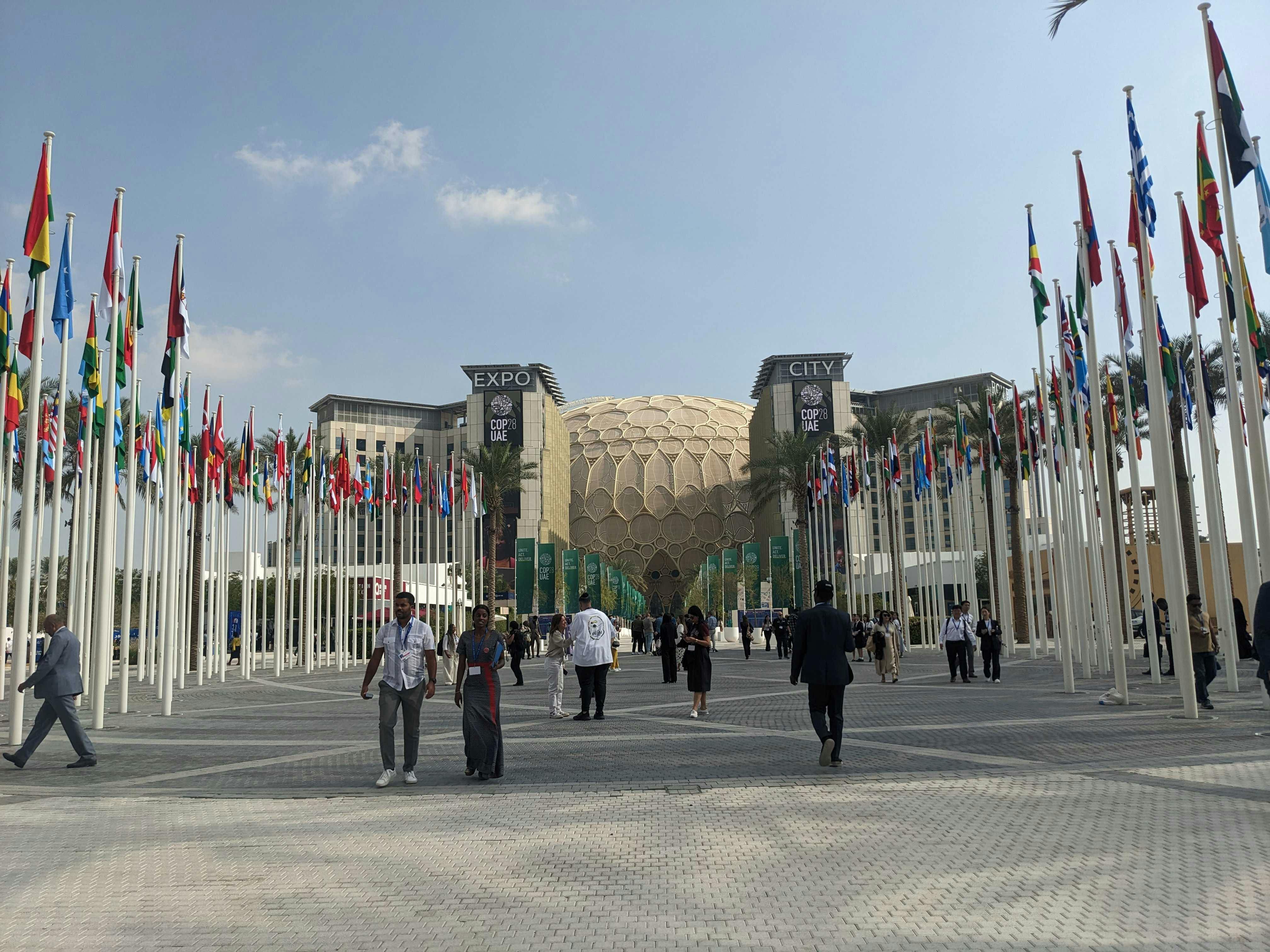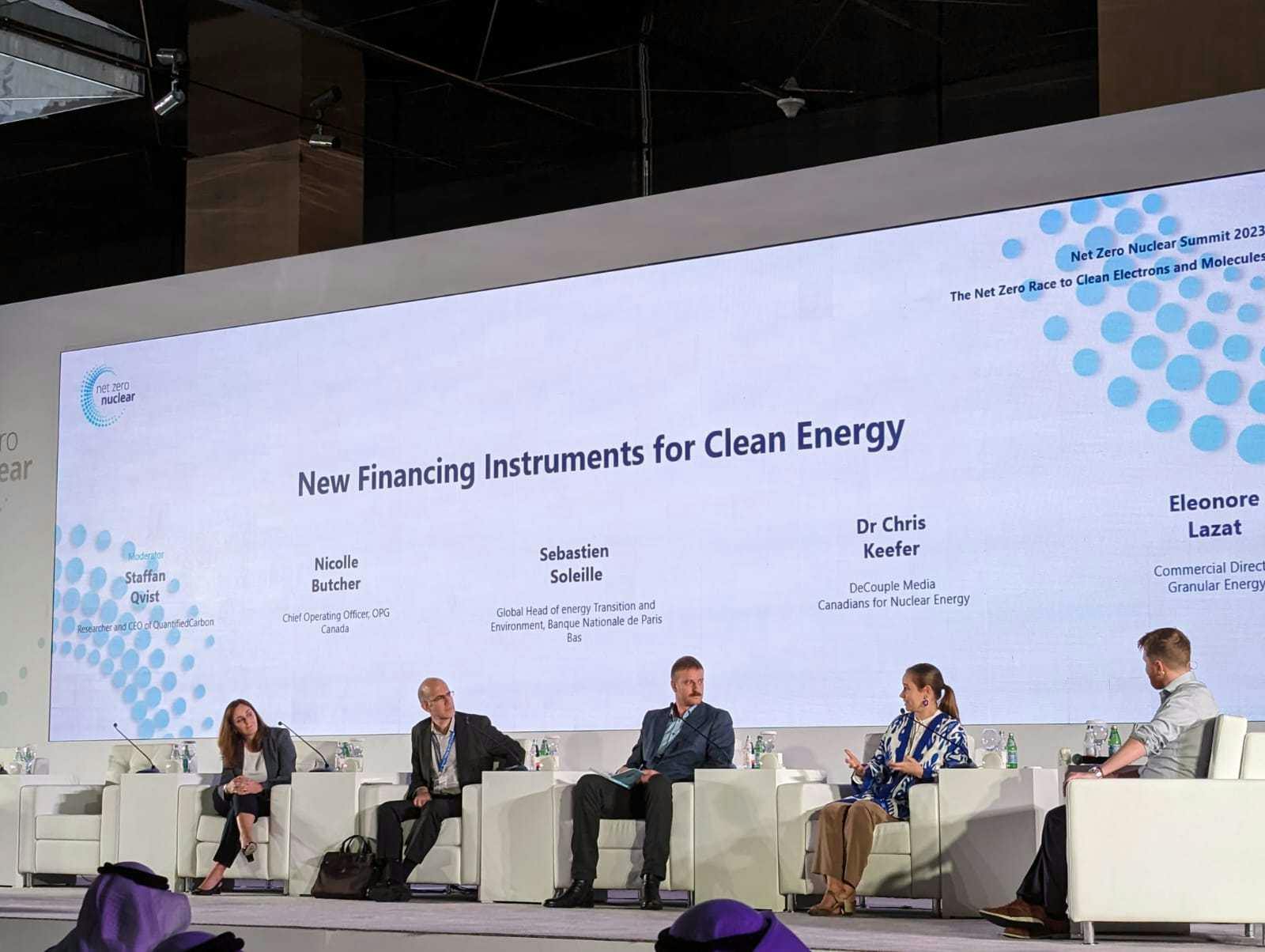Insight · 22 December 2023
The Beginning of the End of Fossil Fuels
Granular Energy was at COP28 to discuss the role of clean energy procurement and hourly matching in the transition away from fossil fuels

For the first time ever, the COP text includes a call to transition away from fossil fuels and recognizes the central role of renewable energy as a solution to the climate crisis. Although the hoped for “phase-out” of fossil fuels was not included, this is still a huge win, and sounds like a Hollywood ending, as BBC journalist Dulcie Lee says “the room exploded into extended applause with almost everyone in the room on their feet.”
We went to the COP in Dubai to join the discussions where negotiators, NGOs, businesses, media, researchers and civil society get together. With Granular Energy’s focus on clean energy procurement, certificate management and hourly-matching perspective in mind, here are our key takeaways from the COP.

Role of consumers in the energy transition
The topic of sourcing 24/7 carbon-free energy (CFE) was front and center. Energy sourcing has a big role to play in driving demand for renewables: corporate PPAs have driven solar and wind asset build out, and this needs to keep growing. International organisations and businesses built momentum on 24/7 CFE through various events and publications at the COP:
- Sustainable Energy For All 24/7 Compact: a UN led global community focussed on building the technologies, tools, advocacy to create a future where all electricity demand is met with carbon-free energy sources, every hour, every day, everywhere. During the COP, the US Federal Government signed the compact.
- The Global Renewables Alliance, advocating for a tripling of renewable capacity by 2030, has also highlighted the importance of corporate sourcing in driving demand for renewables. Hundreds of businesses have joined the campaign to 3x renewables, including large corporates such as Amazon, Microsoft, Decathlon, Nestle, Unilever - and Granular Energy. We joined the Global Coalition of High Impact Corporate Sourcing roundtable at the COP where the message was reinforced.
- Eurelectric, which has an active 24/7 Hub for all sides of energy supply, published documents to accompany energy buyers on the journey to hourly matched renewable energy. They shared contracting principles to guide buyers to develop the right type of agreements to develop granular time-matched carbon-free procurement contracts. They also published research on [hedging benefits of hourly matching](can companies make credible clean claims while protecting themselves against volatility in the wholesale electricity markets?), demonstrating how energy buyers can make credible clean clean procurement claims while being protected against volatility in the wholesale electricity markets.
- Many other NGOs and associations also covered the hourly sourcing topic, including The Clean Energy Buyers Association, covering purpose-driven procurement and The Clean Air Task Force, which went into details on how to achieve 24/7 CFE in California.

Role of utilities
Utilities have a very obvious role in transitioning away from fossil-fuels, but were less present within the COP events agendas. We expected more of the key transition players to share their voice, agenda and goals. Nonetheless, some highlights from the event:
- 27 global utilities launched the Utilities Net Zero Alliance, to us one of the most exciting announcements at the COP. Managed by the IRENA, these growing number of players have aligned and committed to accelerate the adoption of renewables, build the right infrastructure, and align on join efforts for innovation, engagement with policy and regulators.
- The GRA’s 3xrenewables also gathered utility attention, with some of the largest players committing to the effort, notably Iberdrola, Enel, E.On, EDF, TotalEnergies.
Role of hydrogen molecules
From the COP events, side conferences and networking events we joined, green hydrogen definitely felt like the star topic. It’s often taunted as a promising solve-it-all technology, but there is still a long way to go to achieve scaled, viable green hydrogen projects. The EU and the UK have put in place hourly matching requirements for green hydrogen, to ensure electrolysers are receiving green electricity all the time to produce hydrogen. Without, we risk powering our ‘green’ hydrogen with grid fossil fuels. During the first days of the COP, US documents on hydrogen regulation were leaked: the US would be following suit, and require hourly matching for hydrogen from 2028 onwards. While still under review, this is a huge win.

The role of (nuclear) electrons
Nuclear also got some limelight. The first ever Net Zero Nuclear Summit gathered hundreds of participants at multiple venues throughout COP28. The interest and variety of engaged bodies went well beyond those currently and directly involved in nuclear power. The message was clear: a shift away from fossil fuels will require a tripling of renewables, and the same for nuclear power: 22 countries signed a declaration to triple nuclear power by 2050. Other developments:
- Nuclear power provides baseload carbon-free generation. Earlier in the year, EU taxonomy recognised nuclear as a stepping stone towards more renewables, giving it access to investment and other benefits - see the EU Complementary Delegated Act. The UK followed a similar path, stating nuclear generation will enter the Renewables Guarantee of Origin (REGO) program.
- Nuclear benefitting from certificate programs, such as REGOs, means a new source of revenue. As these programs evolve and granular certificates establish themselves, nuclear power will be a key element to deliver carbon-free energy around the clock when renewable generation isn’t available. Watch the panel where we discussed the topic and new financing tools for nuclear here.
It’s the beginning of the end of fossil-fuels, and hourly matching will accelerate the ending by directing clean energy investment to where and when we need cleaner power in our grids.
Share article
More insights
Case study · 05.02.2026
Building the digital backbone for energy attributes certificates: South Pole and Granular Energy partnership
Granular Energy is pleased to announce a new partnership with South Pole. This collaboration marks an important innovative step in renewable energy certificate management across global markets.
News · 03.02.2026
Carbon-Free Chronicles January 2026: The essential round-up of news and reports relating to hourly transparency
We’re back with our Carbon-Free Chronicles, and as we move into 2026, the focus across energy markets is shifting from consultation and experimentation to implementation. Reporting deadlines have passed, policy signals are sharpening, and the market is moving. The direction of travel is clear: higher-quality, time-matched clean energy claims are moving from “nice to have” to “expected”.